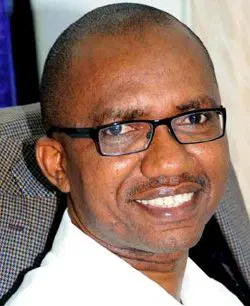by Azu Ishiekwene
Aliko Dangote, Africa’s wealthiest individual, is no stranger to adversity and sabotage. Among his notable battles is the cement war with his kinsman, Abdulsamad Rabiu, founder of BUA Group. Despite attempts to reconcile the two, tensions remain high. Dangote’s dispute with the Kogi State Government over rights and royalties from his Obajana Cement plant was minor compared to his struggle with Rabiu.
Dangote has learned that wealth and comfort are often mutually exclusive in the pursuit of success. This lesson was particularly evident in his efforts to own a refinery. During the last days of President Obasanjo’s administration, the government sold two refineries to Blue Star, a Dangote-led consortium, for $670 million. However, the subsequent administration under President Yar’Adua refunded Dangote under pressure from labor unions, claiming the refineries were national assets that should not be sold.
Bruised but determined, Dangote announced plans in 2013 to build a private refinery, eventually setting its capacity at 650,000 barrels per day, surpassing the combined capacity of Nigeria’s four refineries. This single-train refinery, initially estimated at $12 billion but ultimately costing around $20 billion, has become a focal point of controversy.
Farouk Ahmed, head of the Nigerian Midstream and Downstream Petroleum Regulatory Authority (NMDPRA), accused the Dangote Refinery of producing products with unsafe sulfur levels and attempting to monopolize the industry. However, Ahmed failed to specify acceptable sulfur levels or provide evidence of monopolistic practices. He mentioned other operational refineries, contradicting his monopoly claims.
Ahmed’s accusations are problematic given that neither NMDPRA nor NNPC has the laboratory capacity to verify sulfur levels, relying instead on third-party labs. Despite this, Ahmed publicly discredited Dangote’s products, which have been purchased by companies like TotalEnergies and BP.
NNPC claimed to conduct rigorous testing of its products, but the regulator has not provided verified data. Meanwhile, NNPC has spent billions on maintenance of moribund refineries without producing significant results. Consumers continue to face long queues and contaminated products.
If the Dangote Refinery is breaching regulations, the regulator should work collaboratively with the refinery to address issues. The current conflict, highlighted by a press conference, raises questions about the motivations behind Ahmed’s accusations. The meeting ordered by President Tinubu may temporarily calm tensions, but the underlying issues remain unresolved.
The Dangote Refinery is only 45 percent complete, yet it was commissioned by former President Buhari last year. Ahmed, with his experience as the former chief executive of PPMC, is struggling in his regulatory role, risking public trust by spreading unverified claims.





